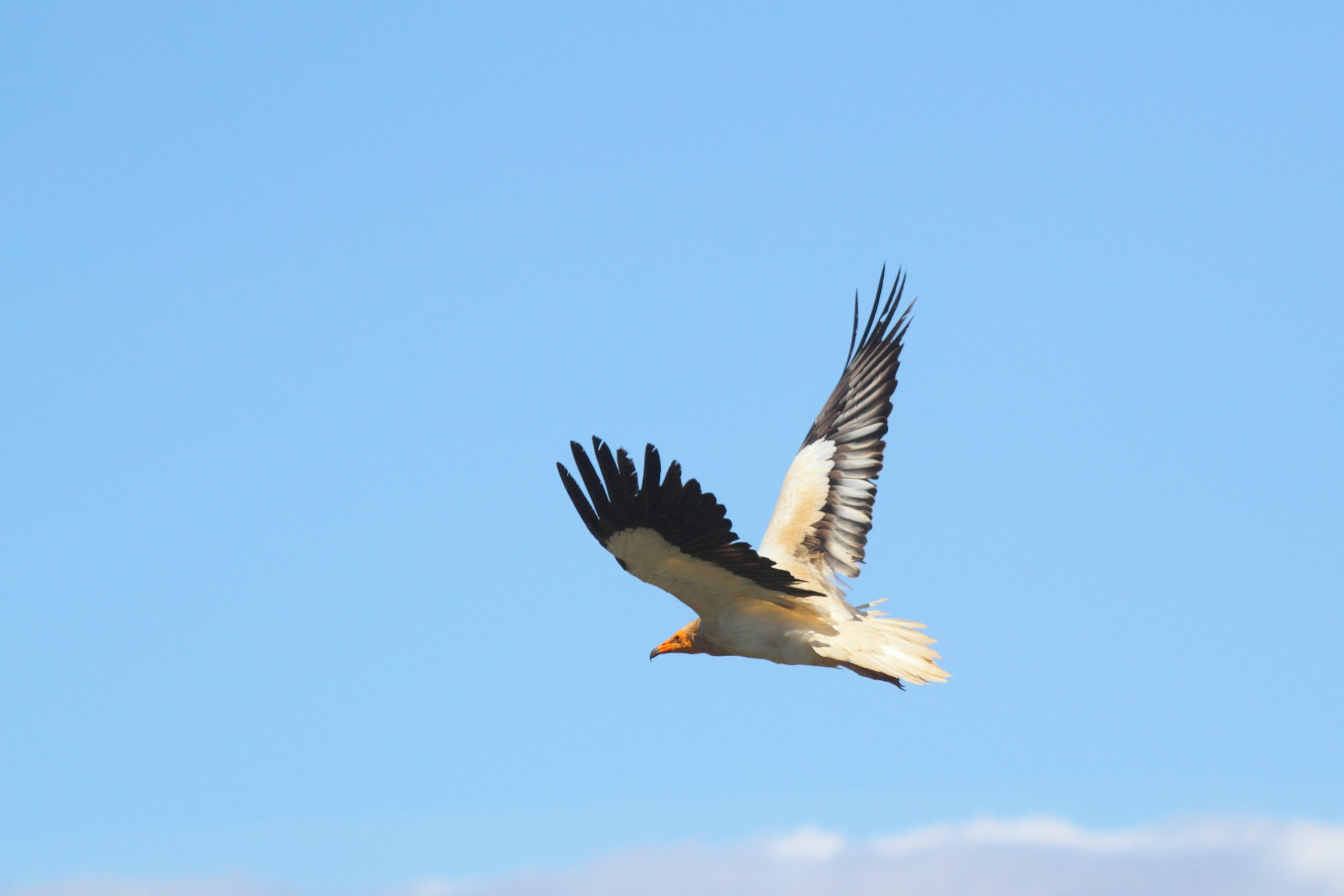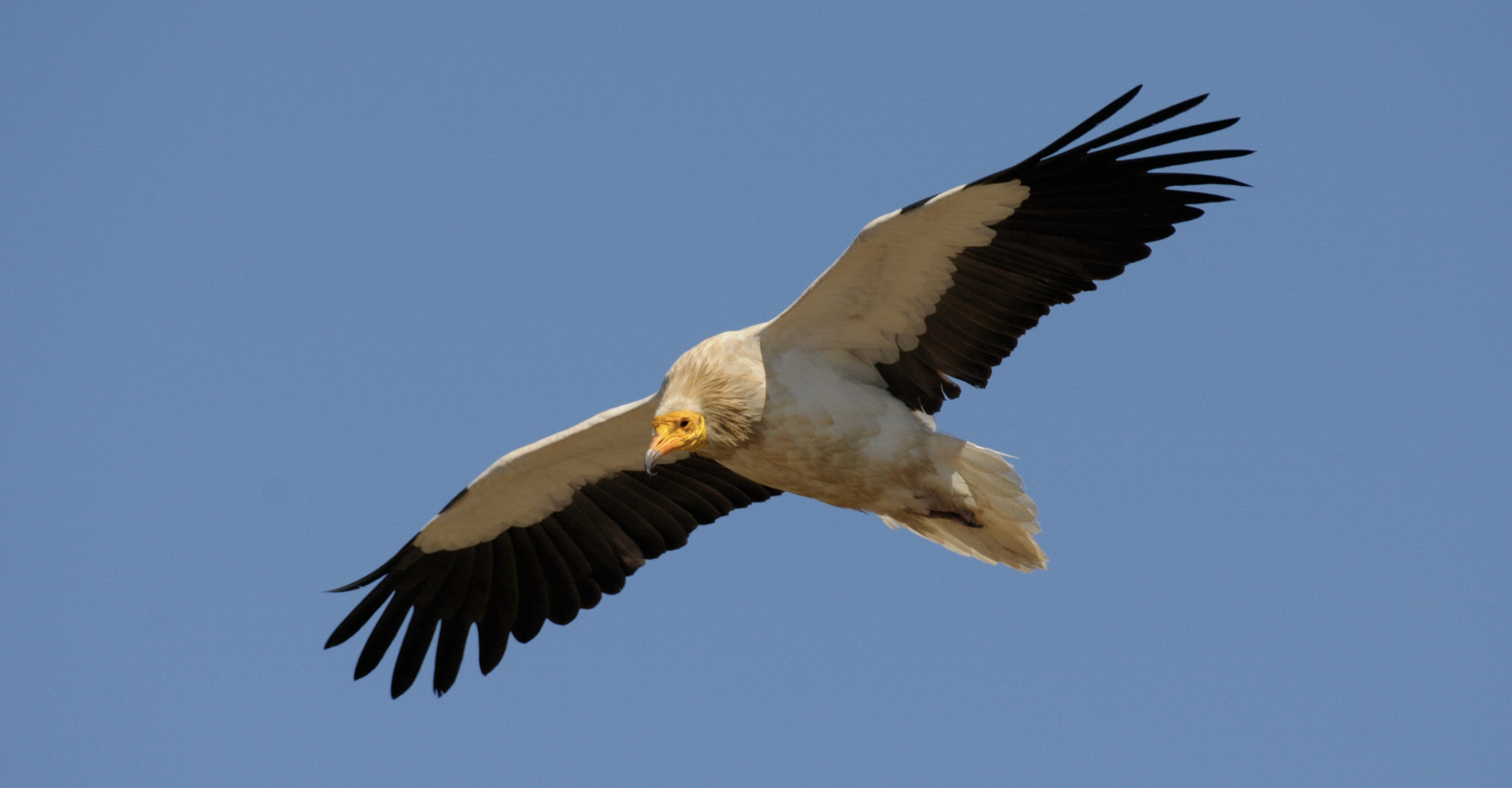
It seems that Egyptian Vultures in the Balkans are declining. The Egyptian Vulture New LIFE project recently monitored the population in the Balkans, and the results showed a significant drop in the number of the species compared to previous years.
Monitoring Egyptian Vultures in the Balkans
This June, conservationists across the Balkan Peninsula, from Bulgaria to Greece, thoroughly monitored the Egyptian Vulture population in the Balkans and derived some sad outcomes. The results from the monitoring showed a significant drop in the population of the species. The number of occupied territories has decreased by 32% (from 74 down to 51) and the number of pairs has reduced by 37 % (from 71 to 45) between 2012 and 2019.
Unfortunately, after some years remaining stable, the population in Greece has dropped to the lowest ever with only three pairs left and two territories occupied by single males (down from five and six respectively in 2018).
In Albania, there are nine occupied territories (pairs occupy five and single birds four) with no change compared to previous monitoring programmes conducted in 2012, 2013 and 2018. However, the total number of occupied territories has decreased by 36% since 2006 (from 14 to 9).
In North Macedonia, there are 13 breeding territories recorded so far, out of which nine are incubating pairs. Even though the number is the same as in 2018, the number of occupied territories has decreased by at least 30 % in the last seven years.
Bulgaria remains the stronghold of the species in the Balkans with 24 breeding pairs, 22 of which are incubating (compared with 26 pairs, 19 incubating in 2018).
Egyptian Vultures and the Balkans

A way to attract Egyptian vultures in the Balkans is through artificial feeding sites, which are crucial for the survival of the population in the region. In 2019, at least two different birds were observed at Studen Kladenet’s feeding site (maintained in the frame of the ReVultures project (LIFE14 NAT/NL/000901) and one more at the Kotel feeding site (maintained in the frame of the Vultures Back to LIFE project (LIFE14 NAT/BG/000649). Furthermore, the Egyptian Vulture New LIFE project will open two feeding sites this year, one in the Eastern Rhodopes (the core area for the Egyptian vulture population in Bulgaria) and another in Epirus, Greece, to help attract and support more vultures. They will probably create two more next year, one in the north of Bulgaria and another one in Epirus.
They will also ensure safe food for the species in Bulgaria, as they will keep supporting at least seven pairs at the feeding sites and another seven pairs with the individual supplementary feeding scheme (60% of the population of the Egyptian vulture in Bulgaria) during this breeding season. Several feeding stations are also currently operating in Greece to cover the entire population left in the country, while in Albania and North Macedonia there is one operating per country.
We, here at the Vulture Conservation Foundation, are tackling illegal wildlife poisoning,which is the single biggest factor preventing the comeback of vultures across the Balkan Peninsula with our Balkan Anti-Poisoning Project. Since March 2018, we brought wildlife organisations, governmental and non-governmental agencies across Balkan countries together to help fight the issue head-on.
Egyptian Vulture New LIFE

Working collaboratively projects like the Egyptian Vulture New LIFE aims to reinforce the Egyptian vulture population in their Europe’s easternmost range across the Balkans. By actively managing and restocking the population by releasing captive-bred birds the project will support the small Balkan population which number between 60 and 80 pairs across the whole region. The project is working to deliver conservation measures that eliminate major known threats such as illegal poisoning and electrocution in their summer breeding grounds. Monitoring the population closely using GPS transmitters will also help the project tackle the major threats Egyptian vultures face. The Egyptian Vulture New LIFE is a partnership of organisations, led by the Bulgarian Society for the Protection of Birds from 14 countries spanning Europe, the Middle East and Africa, to protect Egyptian vultures not only in Europe but all along their migratory flyway.

Balkan Anti-Poisoning Project

The Balkan Anti-Poisoning Project is a cross-border initiative bringing together wildlife conservation organisations, governmental agencies and other stakeholder such as; hunting associations, farmers and scientists, in six Balkan countries to tackle illegal wildlife poisoning.
Funded by the Mava Foundation we aim to secure real and continued engagement of the relevant national governmental authorities in the Balkan region against illegal wildlife poisoning and increase their capacity to counteract it and working together to take positive steps to protect vultures.
The Balkan Anti-Poisoning Project is a partnership between us here at the Vulture Conservation Foundation and the Albanian Ornithological Society-AOS, Protection and Preservation of Natural Environment in Albania-PPNEA, Ornithological Society “Naše ptice”,Association BIOM, Hellenic Ornithological Society-HOS, Macedonian Ecological Society-MES.
The Balkan Anti-Poisoning Project also contributes directly into the implementation of the Vulture Multi-Species Action Plan by carrying out anti-poisoning actions in Albania, Bosnia and Herzegovina, Croatia, Greece, North Macedonia and Serbia, and is building on our work for the last decade in the Balkans thorugh the Balkan Vulture Action Plan.






